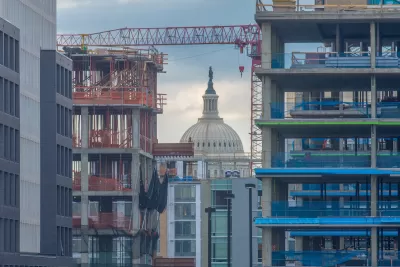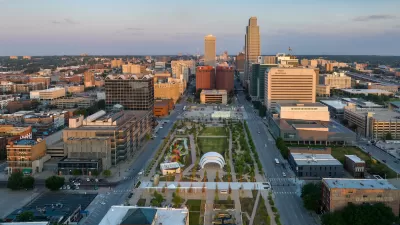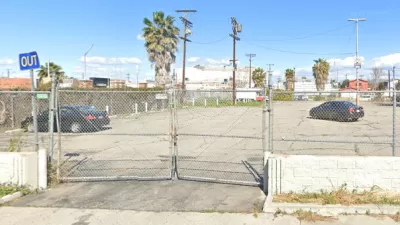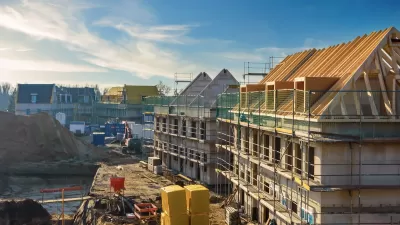The city auctioned off 58 lots at low prices to stimulate housing development. Half are still vacant.

Roughly two dozen properties auctioned off under Washington, D.C.’s Vacant to Vibrant program are still vacant, report Justin Wm. Moyer and Danny Nguyen in The Washington Post. “The program aimed to ‘produce and preserve affordable housing and create homeownership opportunities,’ according to promotional materials.”
According to the article, the city sold 56 sites in 2018 and 2019 in an effort to support the development of workforce housing. “Half of the 56 properties are inhabited and no longer owned by the city. The rest remain undeveloped, uninhabited or badly in need of repair. More than half of those vacant properties have returned to District ownership. In some cases, those who won auctions never took possession.”
“Joseph Schilling, who studies housing policy at the Urban Institute, said the program’s checks and balances are ‘consistent with how other cities have tried to tackle vacant properties,’ but the 1½-year deadline given to most of the developers was probably too short.” Developers are not required to provide proof of financing for a project beyond the purchase price, and the city has not penalized developers who have not fulfilled their agreements.
In contrast, a similar program in Baltimore has yielded more successful results. According to former Baltimore Housing Commissioner Michael Braverman, this was “because it identified developers who had a history of building affordable housing and partnered them with affordable housing nonprofits and community members. The program also helped developers secure financing and relaxed zoning requirements.” Baltimore also strictly enforced a system of fines for developers who failed to meet their deadlines.
FULL STORY: D.C. sold properties for affordable housing. Half are still vacant.

Planetizen Federal Action Tracker
A weekly monitor of how Trump’s orders and actions are impacting planners and planning in America.

Restaurant Patios Were a Pandemic Win — Why Were They so Hard to Keep?
Social distancing requirements and changes in travel patterns prompted cities to pilot new uses for street and sidewalk space. Then it got complicated.

Map: Where Senate Republicans Want to Sell Your Public Lands
For public land advocates, the Senate Republicans’ proposal to sell millions of acres of public land in the West is “the biggest fight of their careers.”

Maui's Vacation Rental Debate Turns Ugly
Verbal attacks, misinformation campaigns and fistfights plague a high-stakes debate to convert thousands of vacation rentals into long-term housing.

San Francisco Suspends Traffic Calming Amidst Record Deaths
Citing “a challenging fiscal landscape,” the city will cease the program on the heels of 42 traffic deaths, including 24 pedestrians.

California Homeless Arrests, Citations Spike After Ruling
An investigation reveals that anti-homeless actions increased up to 500% after Grants Pass v. Johnson — even in cities claiming no policy change.
Urban Design for Planners 1: Software Tools
This six-course series explores essential urban design concepts using open source software and equips planners with the tools they need to participate fully in the urban design process.
Planning for Universal Design
Learn the tools for implementing Universal Design in planning regulations.
Heyer Gruel & Associates PA
JM Goldson LLC
Custer County Colorado
City of Camden Redevelopment Agency
City of Astoria
Transportation Research & Education Center (TREC) at Portland State University
Camden Redevelopment Agency
City of Claremont
Municipality of Princeton (NJ)





























